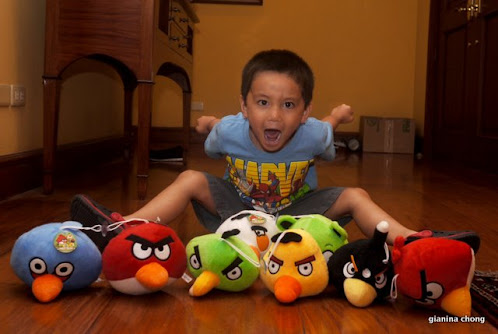This was the question in our mind when Ronell, my grandnephew, died of Leukemia after only a month from diagnosis of the dreaded disease.
A whole family, a whole clan, a whole country, a whole world prayed, “Lord, please heal Ronell.”
The news of Ronell's sickness went viral after it was announced by an uncle on Facebook, Twitter, and e-mail. The message called for help—prayers, blood, and funds, in that order. And people from all walks of life rushed to the hospital, financial help poured, netizens from many countries twitted and sent messages of comfort and concern.
Despite the worldwide chorus of prayers, God chose not to heal Ronell. He took him instead.
Why???
At his wake, I hugged and asked Ronell's older brother, “Are you okay?”
“No, I am not okay,” he murmured.
It will take sometime before he and we will be okay. But his mom and dad put on a brave face as they thanked the hordes of people that packed the chapel, many of whom volunteered to speak during the necrological service:
“Ronell made me realize how important God is in our lives. He brought his Bible to school to tell me about the Savior.”
“I was never close to my parents, but from Ronell I learned the importance of family—and God.”
“He became a surrogate brother to my only son, who is so finicky about the people he goes with.”
“Always thoughtful, always gracious, always generous with his time in helping me and others.”
“He made me laugh, made me feel that everything was okay with the world because of God.”
“He never whined, not even when in pain.”
From the Pastor, who delivered the Memorial Service sermon, “Ronell, weak and drained in the hospital ICU, asked me if God really forgives sinners. When I said yes, his mouth twitched into a smile, despite his pain. That was a most beautiful moment.”
From an uncle, “I used to be reluctant in sharing God's word with friends. But after knowing what Ronell had been doing, young as he was, I am now emboldened to speak about salvation with anyone—even strangers.”
During his brief journey on earth, grace shone through Ronell and changed many lives—of friends, family, and strangers.
Someone said, “God spared Ronell from the landmines of evil forces on earth.”
It's all too clear—our heavenly Father plucked Ronell from his mortal coil to the peaceful place where He lives, because the boy we loved belongs there. Not tomorrow. Not next year. Not in the future.
Now.
 |
| Second stanza of the gospel song, The Greatness of Our God (Hillsong) |














